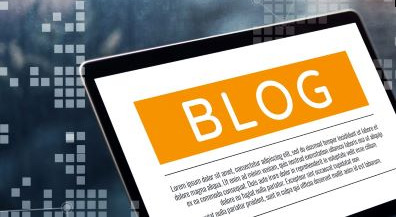By John Bozzella
What is the International Trade Commission (ITC) and what does it have to do with electric vehicle supply chains?
The ITC is an under-the-radar, quasi-judicial federal agency charged with resolving intellectual property and international trade disputes. By law, it’s supposed to protect “domestic industry” and safeguard the “public interest.”
Increasingly, the ITC is also the venue of choice for dodgy entities (you’ve heard the aptly named patent trolls) that file dubious patent complaints to block companies from importing goods into the United States — a pressure tactic to get targets to pay hefty settlements to resolve royalty disputes.
It’s a big and growing problem, especially for the interconnected global auto industry where intellectual property and patent fights over small-dollar parts can disrupt automotive supply chains and stop entire vehicles, including EVs, from entering the country.
These professional plaintiffs are exploiting the ITC, and the agency is letting it happen.
Here’s an example from the troll playbook:
At the height of the global semiconductor shortage, a hedge fund-backed patent licensing company and serial petitioner based in Ireland filed an ITC complaint to prevent imports of EVs produced by General Motors, Volkswagen, Audi, Porsche, BMW and other manufacturers.
At issue?
A $3 electronic component. Seriously.
The Irish company didn’t develop the patented technology for this small part, just came to hold the patent via a license agreement.
Contrast that with auto companies, among the world’s most significant IP creators and have developed technologies backed by hundreds of thousands of patents.
What does this have to do with EVs? See if you can follow this logic.
Apparently, the inexpensive component was used in an electronic circuit … that was bought by a third-party manufacturer … to make an auto part … that was eventually supplied to automakers … and finally installed in EVs.
Banning the import of EVs over a patent to a $3 part is a drastic and disruptive remedy. So why do trolls choose the ITC, instead of just pursuing a claim in federal court?
The answer: the ITC’s primary tool to enforce its rulings is a so-called “exclusion order,” an extreme legal remedy that bans products from entering the United States.
To the ITC, you’re either in … or you’re out. That’s the high-stakes game the trolls play.
As R Street noted: “By threatening an import ban on a high-value product based on infringement of a low-value patent, complaints gain undue leverage in settlement negotiations.”
Leverage. Or extortion? (Tomato, tomatoe.)
Just the whiff of an exclusion order is often enough to bully targeted companies and push them into costly and unfair settlements — merits aside.
This is a pernicious flaw in the IP and patent dispute system and not consistent with the ITC’s mandate to act in America’s public interest. That standard has all but vanished as the trolling problem gets worse.
Meanwhile, automakers are significantly increasing EV and battery production across the country and building new supply chains.
In the last two years, Congress passed three major laws to bolster job creation and domestic manufacturing, including increased vehicle electrification: the CHIPS and Science Act to boost U.S. semiconductor production, the Infrastructure Investment and Jobs Act and the Inflation Reduction Act.
Taken together, these are major investments in America’s industrial base and policies necessary for increasing EV sales in the years ahead.
And yet, patent trolls are using the ITC — a government agency required to advise the president and Congress on trade issues — to undermine that progress, something that hurts both consumers and manufacturers.
The auto industry isn’t the only victim of this racket and shouldn’t be forced to divert resources from innovation to litigation. Especially now.
The process needs reform.
Congress can protect its recent investments by passing the bipartisan Advancing America’s Interests Act and requiring the ITC to return to its mission and demonstrate any exclusion order preventing the importation of a product into the United States is in the public interest.
That would reduce the number of uncalled-for exclusions and make the ITC a less attractive forum for trolling.
John Bozzella is president and CEO of Alliance for Automotive Innovation.
*Originally appeared in InsideSources’ DC Journal: September 22, 2023
